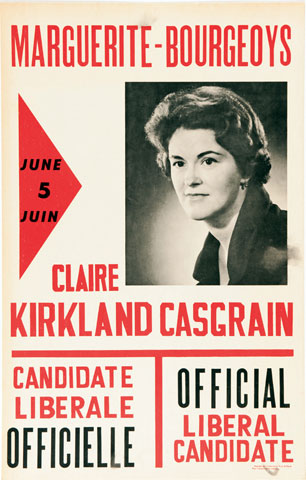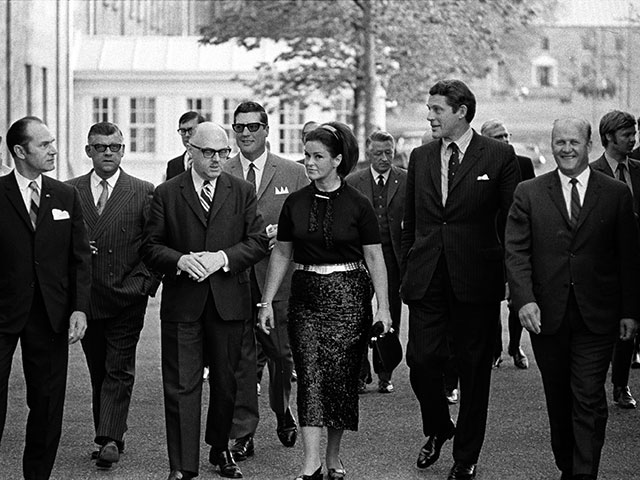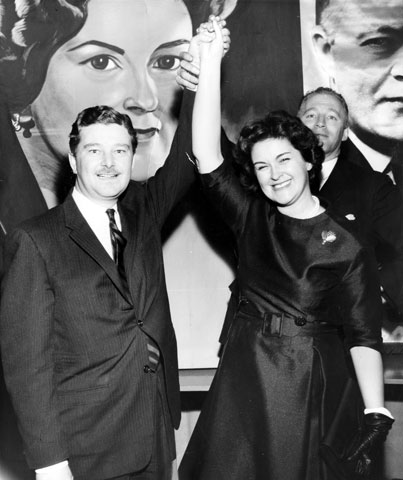Secondary Navigation Menu
Home > Events > The New Role of the State > Election of the First Woman to the Legislative Assembly
For correct page displaying:
- You must activate JavaScript
- And/Or install the Adobe Flash Player plugin
Download video (1 minute 21 seconds, 18.6 MB)
Accessible version of the video
Election of the First Woman to the Legislative Assembly of Quebec
"[...] Before the Second World War it was politically inconceivable for a woman to accede, under any circumstances whatsoever, to leadership of a republic. After 1945, however, it became possible" (translation).
Eric J. Hobsbawm, L'Âge des extrêmes. Le court vingtième siècle, 1914-1991, Paris, Éditions Complexe, 2003, p. 412.
A Woman in Parliament!
The year 1961 was an important year in the history of women in Quebec. It was the year that Claire Kirkland-Casgrain became the first woman to accede to the status of member of the Legislative Assembly of Quebec following a by-election.
Many others had tried their luck before her. In 1947, an Anglophone named Mae O'Connor ran for election under the Liberal Party banner during a by-election in the county of Huntingdon. Three women candidates ran in the elections of 1952, and up to seven in the elections of 1956. No women ran for election in 1960. In the elections of 1962, 1966 and 1970, only one woman was re-elected: Claire Kirkland-Casgrain. Yet the number of candidates was on the increase (up to 11 in 1966). Most among them ran for obscure parties (the Parti social démocrate, the Parti Ouvrier progressiste).
The Married Woman Is No Longer a Child
During her first years as MLA, Mrs. Kirkland-Casgrain focused most of her efforts on the development of a bill that would mark a turning point in the history of Quebec. Less than 25 years after having obtained the right to vote (1940), Bill 16 voted in 1964 gave the married woman a new legal status. No longer was she considered to be an irresponsible minor subject to the authority of her husband. She became a citizen in her own right. Henceforth, a married woman could sign contracts without the consent of her husband or exercise a profession different from his.
Not only was Bill 16 ill-received by a great number of men, but a number of women as well were displeased because it applied only to women married under separation of property. Women married under community of property were not considered. It would be a few years before women, irrespective of their marital status, would obtain the same rights.





